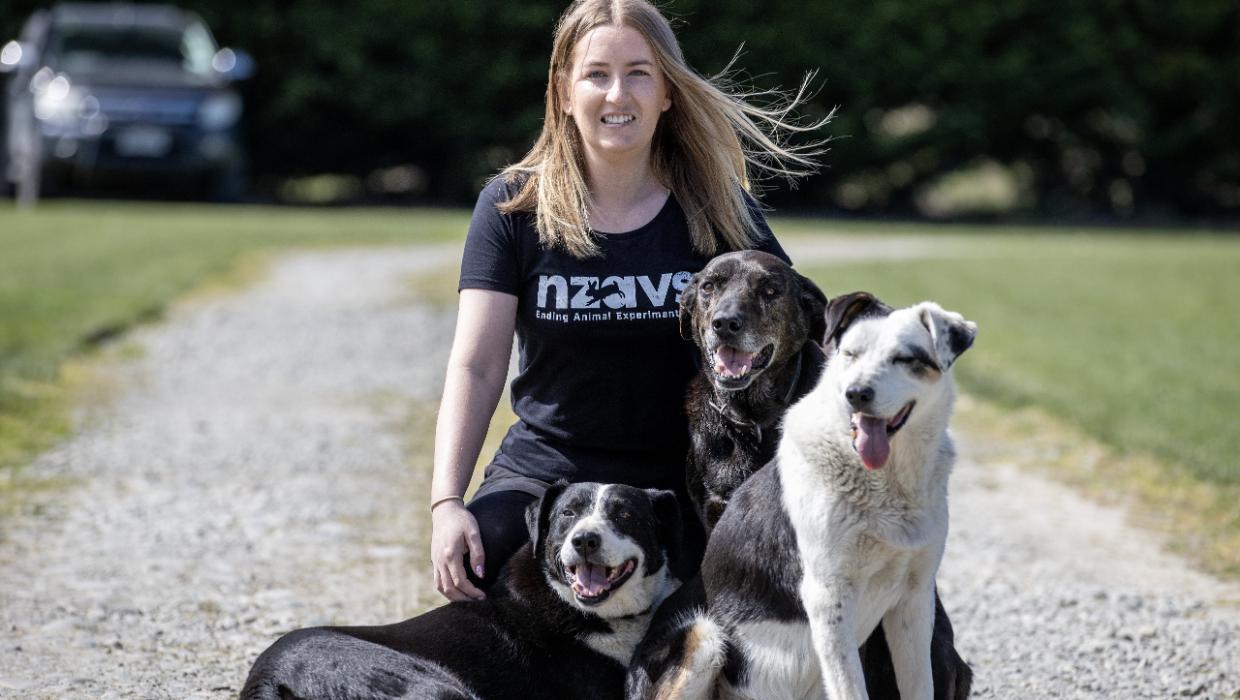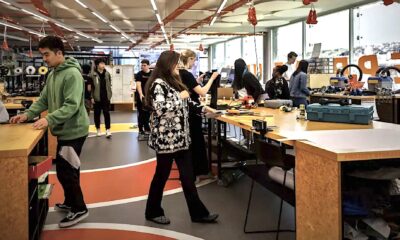Science
Anti-Vivisection Society Launches $50K Grant for Research Alternatives

A significant funding initiative has been announced by the New Zealand Anti-Vivisection Society (NZAVS), which is offering a grant of $50,000 aimed at advancing research into alternatives to animal testing. This move is intended to reduce the number of animals used in scientific research, with the ultimate goal of minimizing animal harm to zero.
Researchers have welcomed this grant, expressing a shared desire to see a decrease in the use of animals in research. Nonetheless, they emphasize that animals continue to play a crucial role in scientific discovery. According to Jodi Salinsky, the animal welfare officer at the University of Auckland, “Nobody wants to use animals for research. We do it because we believe that it is necessary to move forward research that is beneficial for humans, the animals, or the environment.”
Funding and Research Goals
The NZAVS grant is designed to support one or two research groups focused on developing alternative methods that do not involve animals. Salinsky expressed optimism about the collaboration between animal welfare advocates and the research community, stating, “I think this is an extremely positive and proactive way to work with the research community … to get what they want – and what we all eventually want.”
Despite the positive intentions behind the grant, the current landscape in Aotearoa reveals a stark reality. More than 300,000 animals are still utilized annually in research, a minor reduction from 324,395 in 2000 to 316,568 in 2023. The Ministry for Primary Industries reported that in 2023 alone, 45,344 animals were killed for their tissues, while 81,443 were euthanized during or after experimentation. Another 110,565 animals were bred for research but never used, resulting in further euthanasia.
Innovative Directions and Challenges
Jade Pengelly, executive officer of NZAVS, highlighted the need for innovation in research methods, noting that the technological advancements over the past decade are “really exciting.” The hope is that the grant will spur new methods and ultimately lead to a significant drop in the reliance on animal subjects. Proposals that demonstrate long-term impact, such as curriculum reforms or policies to phase out animal usage permanently, will be prioritized.
Michael Pankhurst, a senior lecturer and researcher at Otago University, emphasized the potential of the grant to effect meaningful change. Pankhurst’s research utilizes a combination of live animals, cell cultures, computer modeling, and human studies. He acknowledged the increasing use of alternative methods but pointed out that techniques like organ-on-a-chip or organoids derived from stem cells can be expensive, with limited research funding posing a significant barrier.
While alternative methods are gaining traction, Pankhurst cautioned that certain scientific inquiries still require live animal experimentation. He remarked, “I don’t see us completely replacing animal experiments within our lifetime. Without them, we’d be missing out on a lot of important discoveries.”
The application process for the NZAVS grant is currently open and will close in January, providing an opportunity for researchers to explore innovative solutions in the ongoing debate regarding animal testing in scientific research.
-

 World1 week ago
World1 week agoPrivate Funeral Held for Dean Field and His Three Children
-

 Top Stories2 weeks ago
Top Stories2 weeks agoFuneral Planned for Field Siblings After Tragic House Fire
-

 Sports3 months ago
Sports3 months agoNetball New Zealand Stands Down Dame Noeline Taurua for Series
-

 Entertainment3 months ago
Entertainment3 months agoTributes Pour In for Lachlan Rofe, Reality Star, Dead at 47
-

 Entertainment2 months ago
Entertainment2 months agoNew ‘Maverick’ Chaser Joins Beat the Chasers Season Finale
-

 Sports3 months ago
Sports3 months agoSilver Ferns Legend Laura Langman Criticizes Team’s Attitude
-

 Sports1 month ago
Sports1 month agoEli Katoa Rushed to Hospital After Sideline Incident During Match
-

 World2 weeks ago
World2 weeks agoInvestigation Underway in Tragic Sanson House Fire Involving Family
-

 Politics2 months ago
Politics2 months agoNetball NZ Calls for Respect Amid Dame Taurua’s Standoff
-

 Top Stories2 weeks ago
Top Stories2 weeks agoShock and Grief Follow Tragic Family Deaths in New Zealand
-

 Entertainment3 months ago
Entertainment3 months agoKhloe Kardashian Embraces Innovative Stem Cell Therapy in Mexico
-

 World4 months ago
World4 months agoPolice Arrest Multiple Individuals During Funeral for Zain Taikato-Fox





















